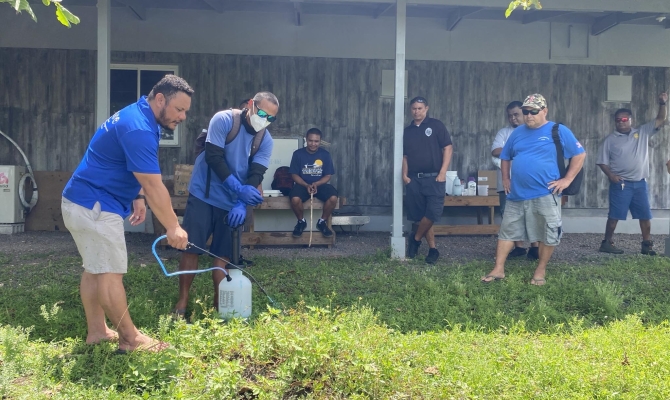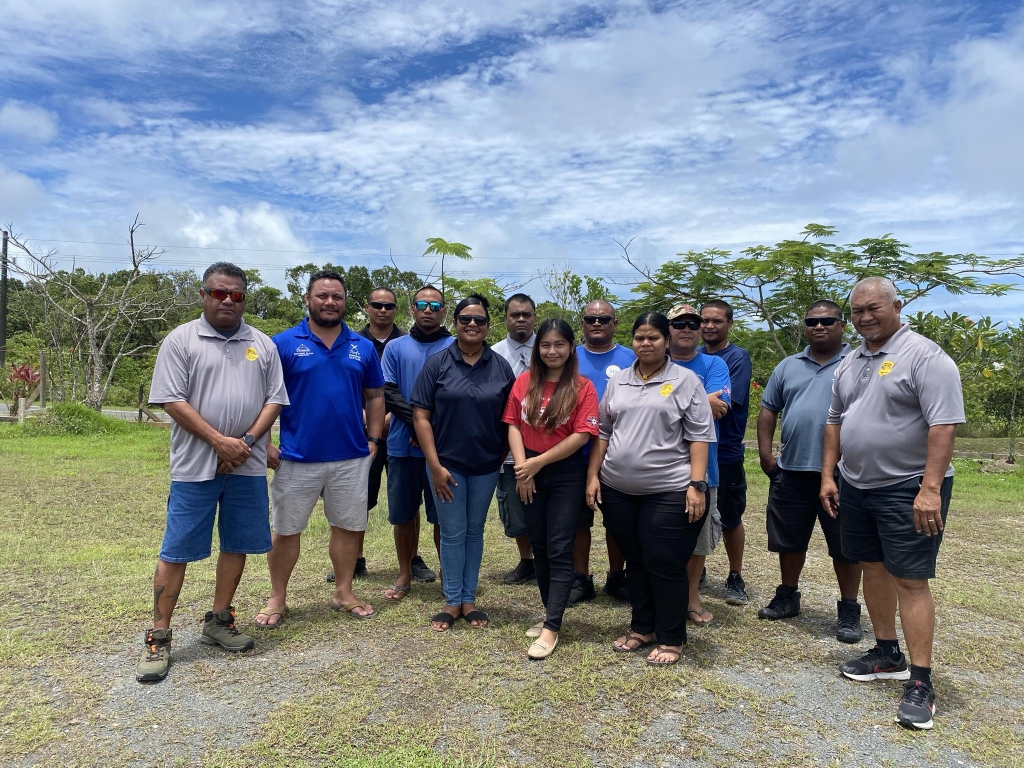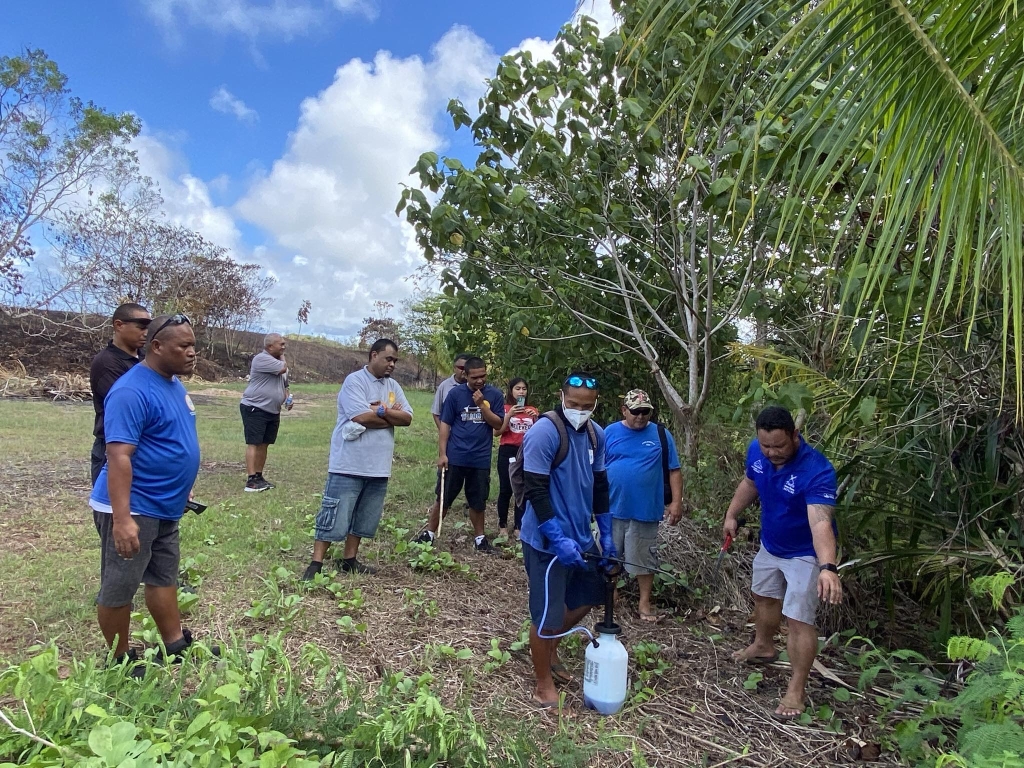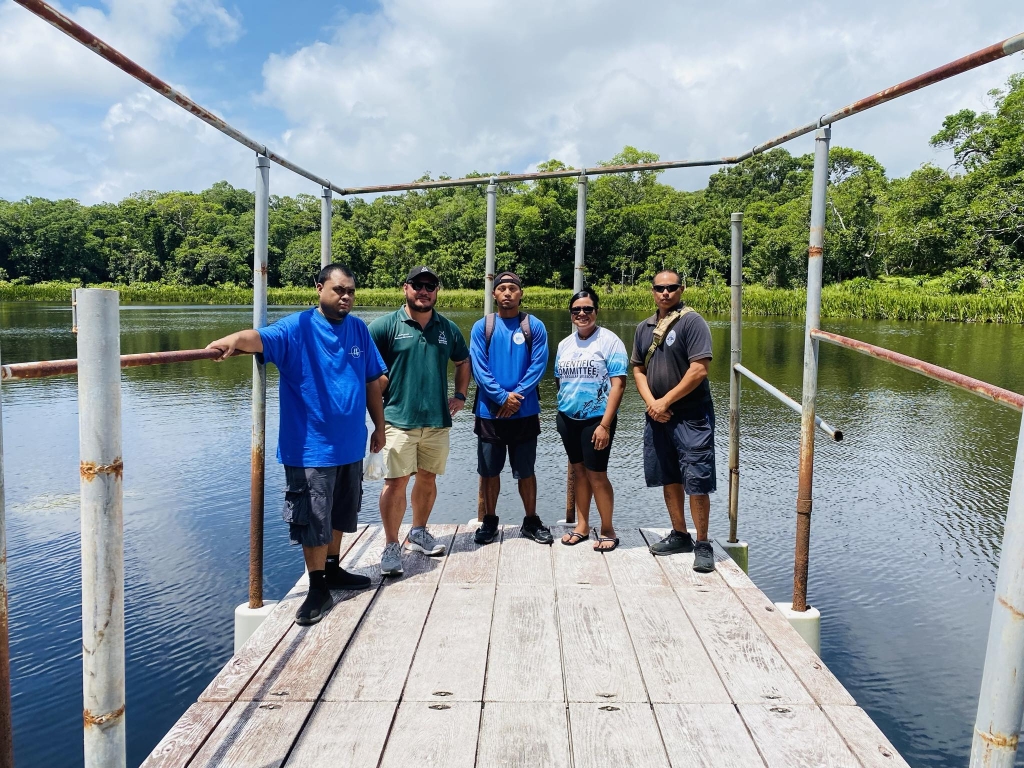
Building the natural resilience of Palau is at the root of a War on Weeds programme in the island nation. Five species of high priority weeds will be the target, namely Praxelis (Praxelis clematidea), African tulip (Spathodea campanulata), water hyacinth (Eichhornia crassipes), chain of love (Antogonon leptopus) and the giant reed (Arundo donax). These weeds pose high risks to Palau with high potential to invade and transform the nature of ecosystems over a substantial area.
The Secretariat of the Pacific Regional Environment Programme (SPREP) Pacific Regional Invasive Species Support Management Service (PRISMSS) is collaborating with the Palau Government to revive the management of invasive species with a focus on eradicating low incidence high priority invasive weeds and restoring ecosystem resilience.
A stakeholder engagement workshop was recently completed by the SPREP PRISMSS team to scope activities for the PRISMSS War On Weeds (WOW) programme and the Resilient Ecosystems, Resilient Communities Programme (RERC). Officials from the Biosecurity Division, the Koror State Government’s Rangers and Conservation officers, and staff of the Ministry of Agriculture, Fisheries and Environment (MAFE) attended the workshop.

This has led to identifying the need for work through the WOW with a focus on the five low incidence high priority weeds.
The RERC site prioritisation discussion proposed the Ngerderar Watershed Conservation Area in Aimeliik as the lead site for piloting the programme in Palau. The area, spanning approximately 380 hectares, contains an intact and pristine forest, including old-growth forest, with a large variety of tree species. The watershed is also home to several cultural sites, legends, and historical relics from World War II. The site is of great importance in its service as a back-up water source during times of drought. Notable invasive species present for the site-led project include the rattan palm (Calamus pseudotenuis), Kosters curse (Miconia crenata), Albizia spp., to name a few.
“Having both weed-led and site-led management programmes in Palau will be vital in reviving past invasive weeds management efforts that have been discontinued since 2019 due to staff turnover,” said Mr Josef Pisi, PRISMSS Programmatic Coordinator.
“These are key in addressing technical and management capability in weeds and other taxa management gaps identified for Palau, as well as raising awareness on the significance of managing invasive species to build climate resilience and adaptation.”
A hands-on training session was also completed demonstrating the safe use of tools and equipment and application of herbicides to manage weeds. The training was met with enthusiasm by the Rangers and Conservation Officers from the Koror State Government, Biosecurity Officers, and the staff of the Bureau of Environment.

Key outcomes from the scoping mission include the need for human resources, equipment, and raising awareness country-wide on the significance of invasive species management to build climate resilience and adaptation. These findings will directly contribute to the planning and development of the activities to be implemented with the Government of Palau to resume the WOW and initiate the RERC programme under the New Zealand Government funded PRISMSS-Restoring Island Resilience project (PRISMSS-RIR) implemented by SPREP.
Palau Invasive Species Coordinator, Ms. Lei Uriik Rengulbai, expressed her gratitude on the support provided to Palau.
“We are grateful that SPREP approached Palau through PRISMSS with financial and technical assistance. Palau’s National Invasive Species Coordination Office has been dormant for a while, and we are excited to get things rolling on-the-ground with the technical support from PRISMSS,” said Ms Rengulabai.
“One major gap is our need for human resource capacity which we desperately need right now. Hopefully with the recruitment of new staff under this project we can be better equipped with resources and technical support from PRISMSS to build the capacity within the Bureau of Environment in managing invasive species”.
The project will provide technical support and resources to assist local invasive species management practitioners on the ground in battling invasive species to improve Pacific Island countries livelihoods and resilience to climate change by reducing the impact of invasive species on natural and agricultural ecosystems.

SPREP Invasive Species Adviser, David Moverley commends the revitalisation of the Palau War on Weeds Programme. For him, this is also a walk down memory lane.
“The PRISMSS War On Weeds programme adopted its name from the Palau War On Weeds programme which was in place over twenty years ago,” said Mr Moverley.
“Palau is where it all started for me in the Pacific, and it is imperative that we continue to support the great work that our colleagues that are no longer with us began. Sustaining country capability is essential to the success of these projects which sometimes take many years to complete.”
The addition of the WOW and RERC programmes will increase the presence of PRISMSS within Palau with the Predator Free Pacific (PFP) and the Protect Our Islands (POI) Programmes already operating in collaboration with the Koror State Government.
The Stakeholder Engagement Workshop took place in Koror, Palau from 22 to 26, May 2024. The safe use of tools to manage weeds training was held on 24 May 2024.
PRISMSS-Restoring Island Resilience is a New Zealand-PRISMSS collaboration project that aims to improve Pacific Island Countries and territories livelihoods and resilience to climate change by reducing the impact of invasive species on natural and agricultural ecosystems through the five PRISMSS Programmes.
For further information on PRISMSS please visit https://www.sprep.org/invasive-species-management-in-the-pacific/prismss